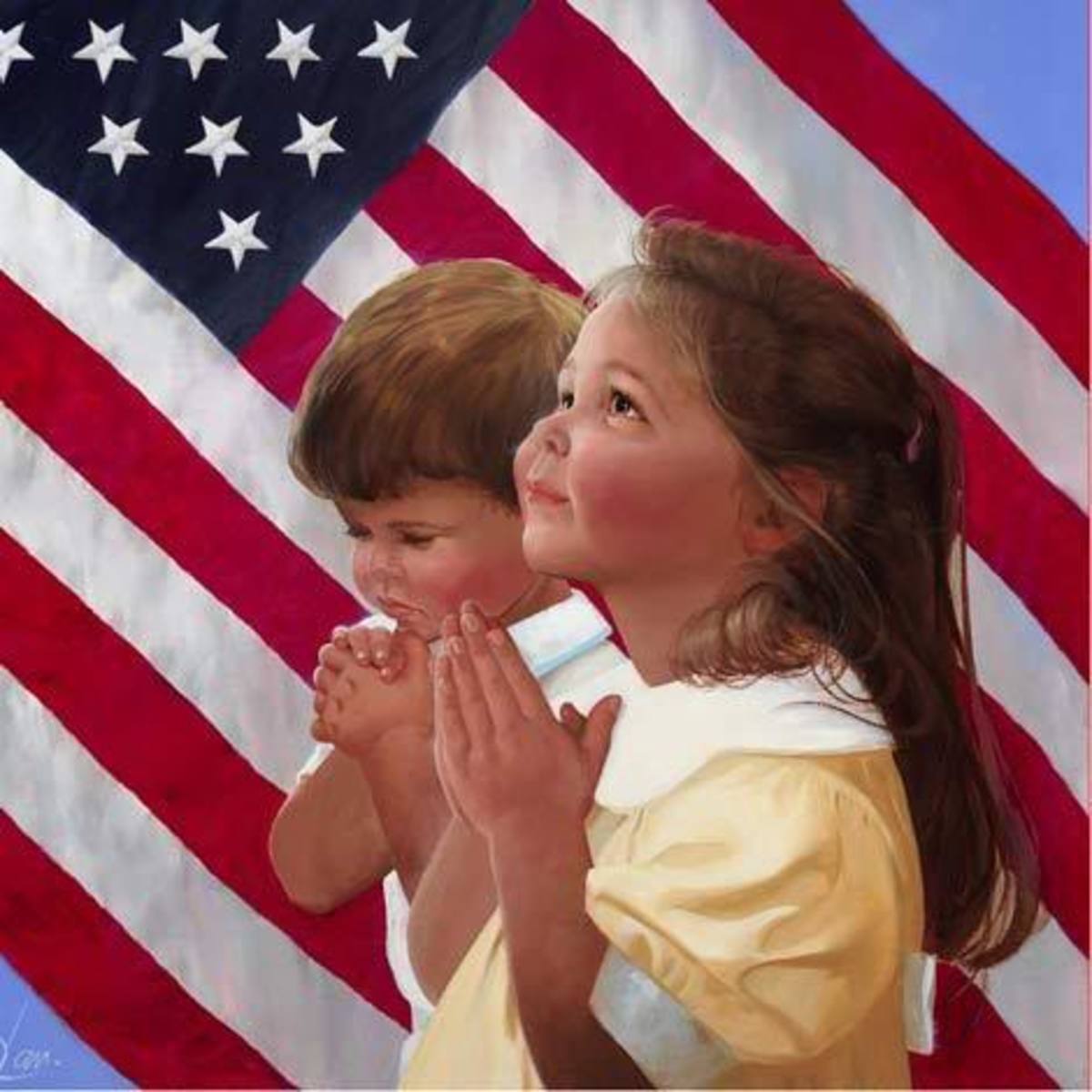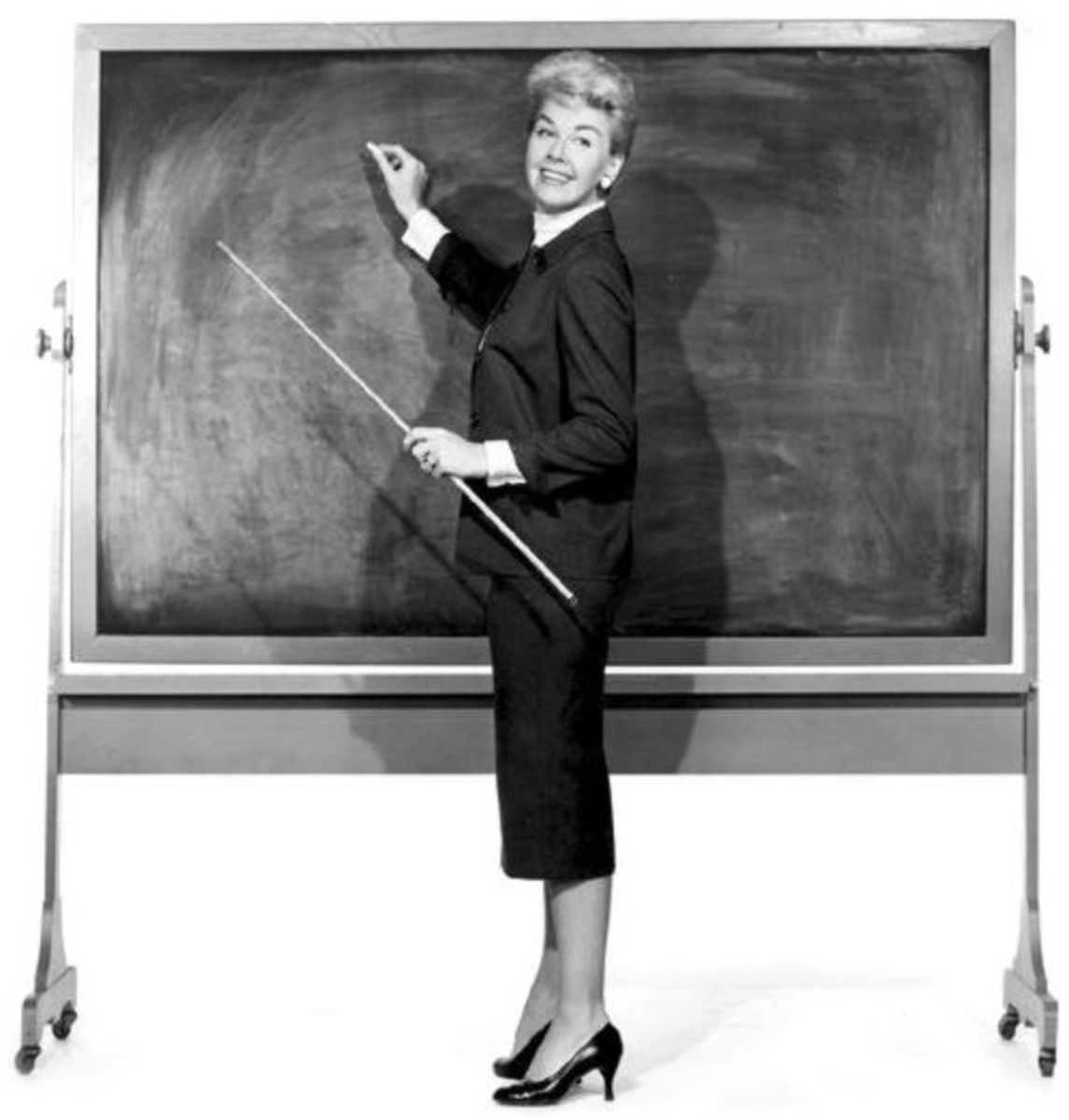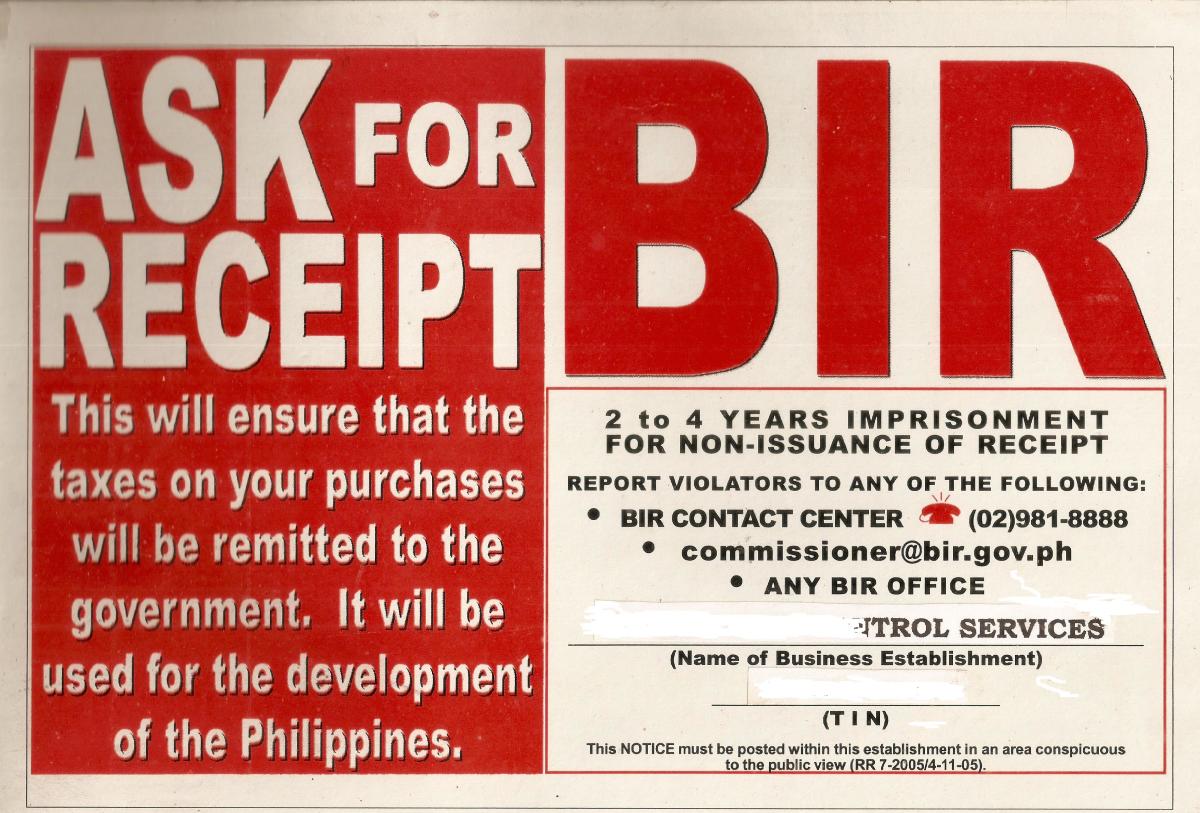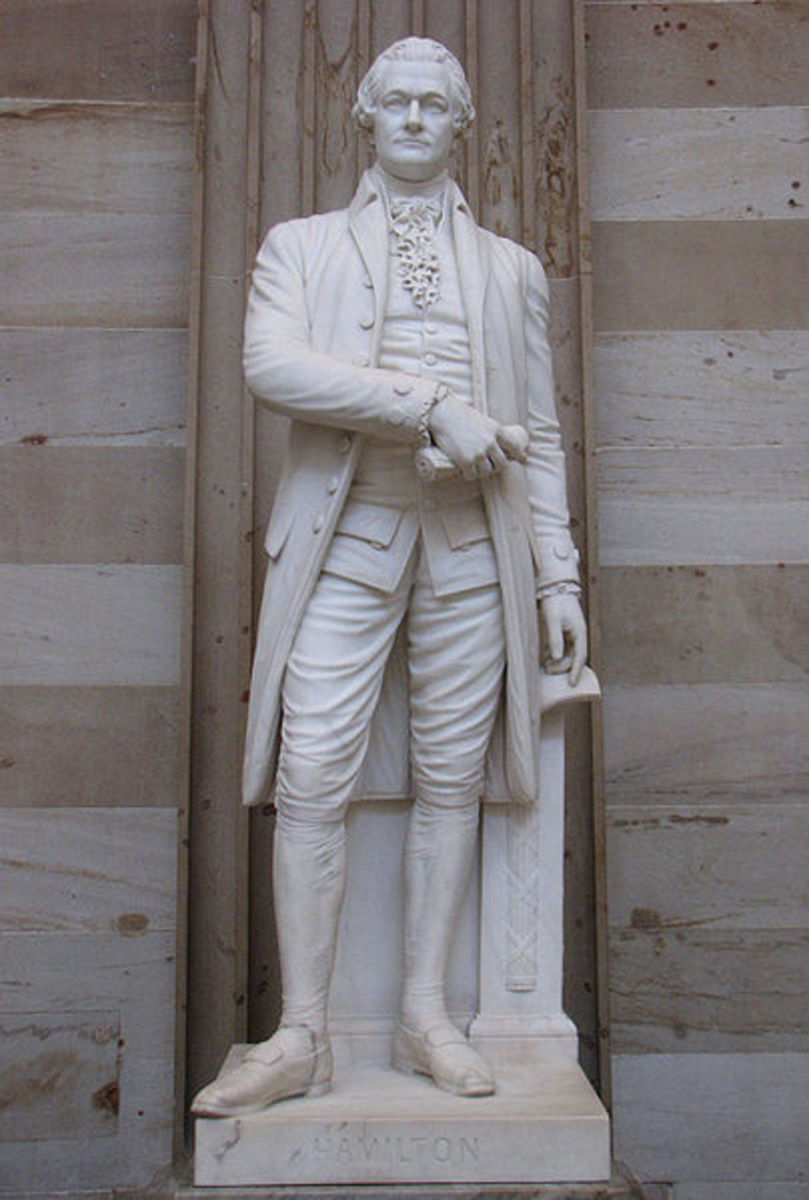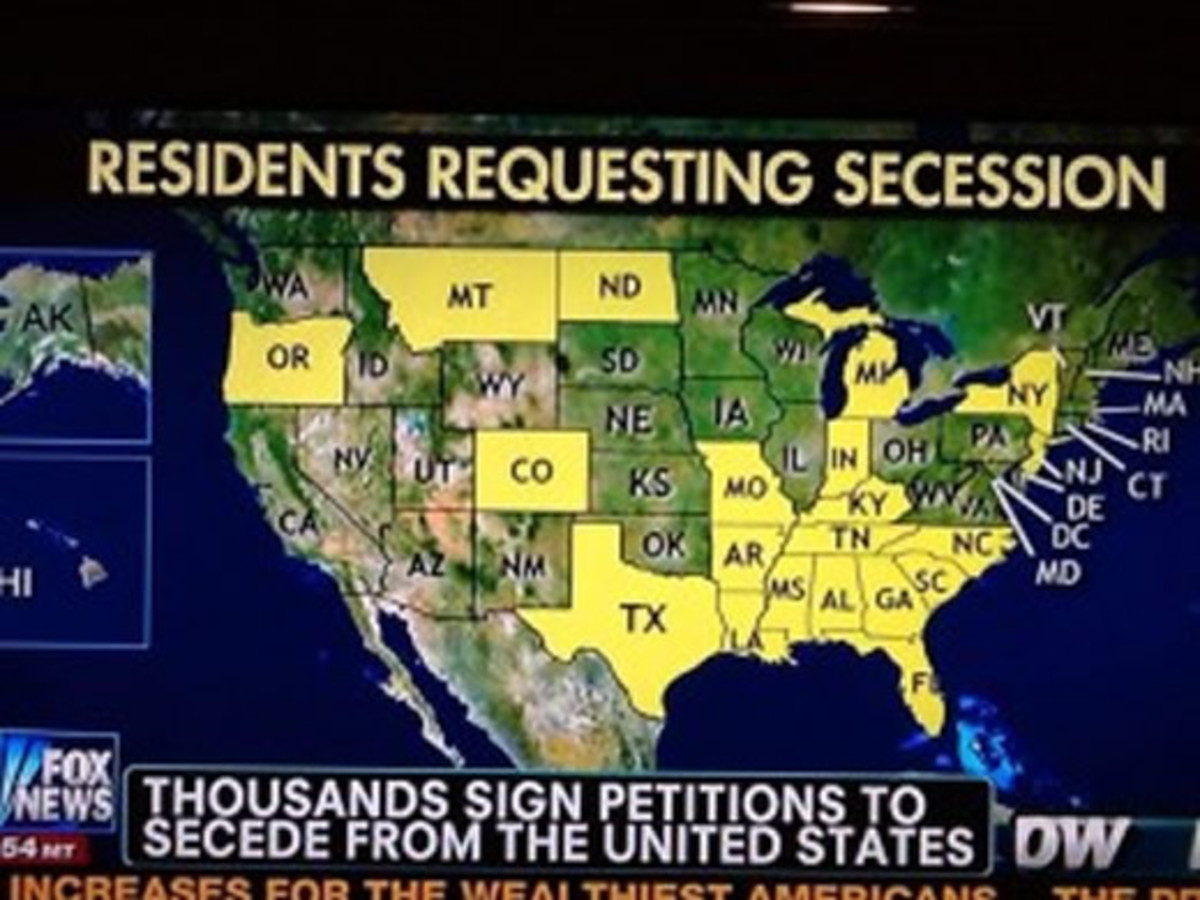Does Separation of Church and State Breed Intolerance?
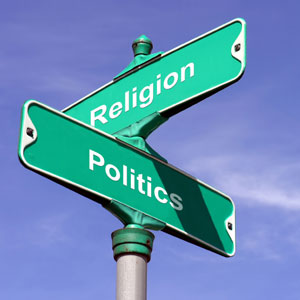
The political debate over separation of church and state has affected my life since I was in the second grade. Even at such a young age, I was aware of the turmoil caused by the great debate, and being very young, I just didn't get it. What was the big deal? I could not understand why anyone would think that prayers and bible stories could bring harm to any child, or adult, for that matter. After all, such activities promoted goodness among all people, right? The stories provided examples of why we should be tolerant, why we should be kind and helpful, and why we should treat others in exactly the same manner that we would like to be treated. How was that harmful?
Of course, as I grew older and matured, I began to learn what all the commotion was about. Imagine my surprise when I learned that the case which established the banning of prayer in school actually took place in 1962. I started first grade in 1966. I remember my first grade teacher very well. She was one of the kindest women you'd ever want to meet, very grandmotherly and absolutely well suited to handling a mob of first graders. Every morning, at her instruction, we closed our little eyes and bowed our heads over clasped hands while she recited a short prayer. Following the prayer, we were treated to a quick bible story, after which we would discuss the lesson contained within. We had many occasions during that school year where an incident would occur that would bring a past lesson to mind. We small children would often look at the perpetrators grievously and remind them of the lesson. More times than not, that was all it would take to end the “bad” behavior taking place.
Back then, I don't believe I ever met anyone who didn't believe in God. We didn't debate whether “He” existed. Existence was pretty much taken for granted. We were also much too young to understand that there were differing views regarding different types of religion. Many of my classmates went to the same Lutheran church as I, but there were just as many who attended the Presbyterian church, the United Methodist Church, and the Catholic church. We looked at it in the same manner as those who shopped at different grocery stores. No big deal, just a matter of preference for reasons in which we weren't interested.
I remember arriving for the first day of second grade. We were informed that bible stories were now not permitted, and the morning prayer held in each classroom was likewise eliminated. They made a concession to allowing prayer only in the form of a non-denominational utterance across the PA system, read by the principle. The students were not happy with this development. We didn't understand why prayers and bible stories were now illegal in schools. It was explained as going against our Constitution. Being so young, that didn't make much sense to us either. If our country was founded on democracy where the majority rules, then why were we the losers? We looked around suspiciously at each other and wondered who was the culprit responsible for this decision. When it was determined that no one we knew personally had anything to do with it, we wondered why we were being affected by some stranger's wishes. It did not make sense to us.
The topic sparked a lot of discussion among all the elementary students in my school. We were not happy with the decision. We liked the morning discussions. We started our day with the idea that a benevolent God was watching over us, and taking note of the goodness we were so intent on exhibiting. During that school year, there were still occasions where a past lesson would creep into a discussion of whether a classmate's behavior was acceptable or not, but the occurrence became less and less. The memories were fading. Going to church every Sunday would serve to refresh our memory, but soon our Sunday lessons and activities became just that...Sunday activities. Thus began the disconnecting from religious inspired morals and ethics.
I have to take the maturing process into account as an influence on my observations and assumptions, but mostly what I observed was a fine, almost imperceptible line being drawn between how we behaved on Sunday and how we conducted our lives the rest of the week. I started noticing that children who were friendly to one another and played well together on the church lawn were not interacting so well in the school setting. I was beginning my lessons on hypocrisy and I wasn't liking it one bit.
As the days, months, and years moved on, I was headed toward a conclusion that “religious” people were primarily liars and manipulators. They behaved a certain way in front of others they presumed to believe were “God-fearing”, but had an entirely different set of rules for the rest of the world. I learned they tended to speak out of both sides of their mouths. I came to have a great distaste for anyone who proclaimed themselves to be righteous, and avoided them with a passion. I didn't trust them to be who they presented themselves to be. I certainly wasn't going to trust them to guide me in matters of my belief system.
By the time I had reached 6th grade, I had made up my mind that I simply could not subject myself to their company, even on Sundays. I remember informing my mother of my decision not to attend church or Sunday school any longer. There were arguments and even threats on her part, but eventually she understood that sending me there was only going to cause me to dig my heels in deeper. I believe she also understood that what I was observing taking place in those “hallowed halls” was likely to undermine and eradicate whatever belief in God might still be lurking within my brain.
That I still maintained a belief in a higher power was evident in some of my activities. I had never really given much attention to the different kinds of religion practiced by people. At a young age, I just excepted that God was God and no matter whether one prayed on his knees or touched his head to a carpet, His being wouldn't change. I DID develop a curiosity about such people, though.
My attention was first drawn by one young lady in particular. I noticed her in my homeroom class when she didn't recite the Pledge of Allegiance with the rest of the class. Every morning, she simply stood out of respect for the rest of us, but never once uttered the sacred words. What was going on? And why was she permitted to not swear her allegiance if she was an American citizen? So I asked her about it. She explained that her church, the Jehovah's Witness, did not permit the activity. Say what?
I was curious about a church that could order it's members to be disloyal to their country. So, I invited her to my house to explain her beliefs to me. It was interesting, but I couldn't buy into the dogma. At this point in my young life, I had come into contact with the Jewish faith, the Christian faith in all its many forms, and the Catholic faith. There was a common theme running through all of them.
Every one of them puts honoring their God before all else, and while there are many individually embraced rituals and methods employed in conferring that honor, there isn't a single one that doesn't outline the rules for co-existence among one's fellow human beings. If we remove the other trappings, they all advocate the same ideals of tolerance, acceptance, care and empathy for the downtrodden, kindness, and humility.
As a high school student, I found myself wondering why people needed God as a reason for doing what's right by their fellow man. That led to more questions, such as why so many who professed a total belief in their version of God, could intentionally engage in actions which defied the very principles they claimed to embrace. During the time all these questions were forming, another event in the hotbed of “separation of Church and State” took place. The morning prayer read over the PA system was eliminated because it had been determined that school led prayer was an endorsement of the existence of God. Such endorsement offended the atheists. Now a simple few moments of silence was provided for those inclined to say silent prayers.
It was the mid-70's when this took place. By then there had been a total disconnect between school activities and church activities. Students had pretty much decided the whole debate was a big waste of time and energy. Those who instigated the changes were seen as jerks who wanted to create a commotion just to gain attention. None of us were likely to be swayed one way or another by the mere recitation of a few mumbled holy words over the PA. Very few students utilized the moments of silence as an opportunity for prayer, choosing to pass notes or doodle instead.
My own path of discovery has led me to form and discard many ideas about things of a spiritual nature. 30+ years later, I've realized there are many reasons for why people behave as they do, and just as many diverse answers to the various questions that occurred to me during my lifetime. I've come to realize that people need rules to live by; rules that are outlined and written down; rules that are designed to lend guidance when one finds himself in unknown territories. While not an advocate of formal religion, I've come to understand that some people need the reassurance that someone or something is bigger than they, and that something will help them and provide them with comfort. It is called hope.
What we have done by separating any and all church related activities from the scholastic setting is the total and complete removal of hope. We have created a world of uncertainty, hunger, poverty, intolerance, and chaos, because that is human nature when left to our own devices. We are hard wired for survival at all costs, and when our sense of safety is threatened, we will do whatever we must in the interest of protecting our lives as we know them. We have created a world of “every man for himself” where there is no one to be counted on for looking after our well-being but ourselves. By the same token, there is no one to whom we must be held accountable.
You may take the stand that we've created man-made laws to cover just about every action a person may take, therefore we are accountable to each other through those laws, but that is an illusion. The foundations of such ideals are built on sand. As human beings who are wired for self-preservation, we will continually reformulate and redefine laws to accommodate our innately selfish perspectives. Those who are left out of benefiting from such laws, those who are placed in circumstances of hardships by such laws, and those who believe themselves to be persecuted by such laws will strike out against them. When despair rules and there is no hope but in one's fellow man, the same fellow men who have enacted those laws, the desperate do not care about the repercussions. They have already reached a point where they can see no way out, no better tomorrow, no hope.
As I said, I do not practice within any formal religion. I have my own belief system, arrived at by way of my personal experiences. It serves me well in times of hardship and well-being alike. I don't know if I would have a different perspective had prayer not been removed from my scholastic experience. However, I do believe the removal did more harm than any possible good for American society in general.
Instead of removing the threat of religious intolerance, it has done the exact opposite. The widely spread national attention each new case attracts only serves to underscore the fact that there are differences. Each time another law is passed to remove yet one more instance of religious belief from a public institution, the factions are incited to fight and argue, heaping blame and intolerance upon the other.
By removing prayer from the schools, we have implied to our children that a belief in a higher power is a bad thing, something to be avoided rather than embraced. Instead of blocking a youth's right to believe and practice their beliefs, why not make space and time available? How difficult would it be to designate different spaces within the schools as separate areas for use each morning or afternoon? How much trouble is allowing students to head to the auditorium for a quick prayer among their Christian brethren, or to head to the gymnasium for a short read from the Torah? As for the atheist population, there's no coercion to attend any designated space.
For those who would argue that it would place the atheists in a position of being left out....So? It would be their choice, right? It would be their decision to stand for their personal belief system by not going to any designated area. At one time or another, throughout our lives, we are all a part of a minority when it comes to personal ideals and beliefs. Perhaps it is our insistence on shielding our children from the realities of life that has caused our society to undervalue courage and tolerance. When we eliminate situations which call for tolerance, we eliminate the opportunity to teach tolerance.
If you find this information helpful or interesting, why not pass it on by clicking the Tweet, Like, or +1 buttons provided at the top of the page?
- Quest For The Afterlife
What happens when we die? is the question that prompts the author to begin her journey. Travel with her into a world of spirits, angels, divination, and an exploration of the mind, itself. - David's Promise
The author takes us on a journey through the pain of losing her beloved brother to the unexplained appearance of him in a dream. She describes the information of the afterlife as told by her brother and tells of her discovery, many years later, regar - Wealth Inequality or The Great Divide
Inequality of wealth and income. It is an issue of great importance to America's disappearing middle class. What and who are the culprits? How did we go from a nation filled with American Dreams to a nation of people tottering on the brink of ruin an - Outsourcing The American Dream
Unemployment is rising despite government's attempt at reworking the numbers to exclude those whose benefits have run out. The fact remains that the United States has been bleeding hundreds of thousands of jobs. The culprit? American Corporations hun


